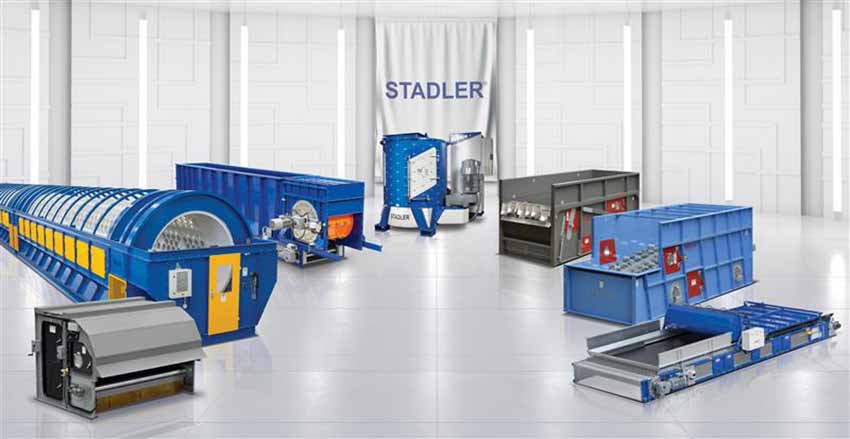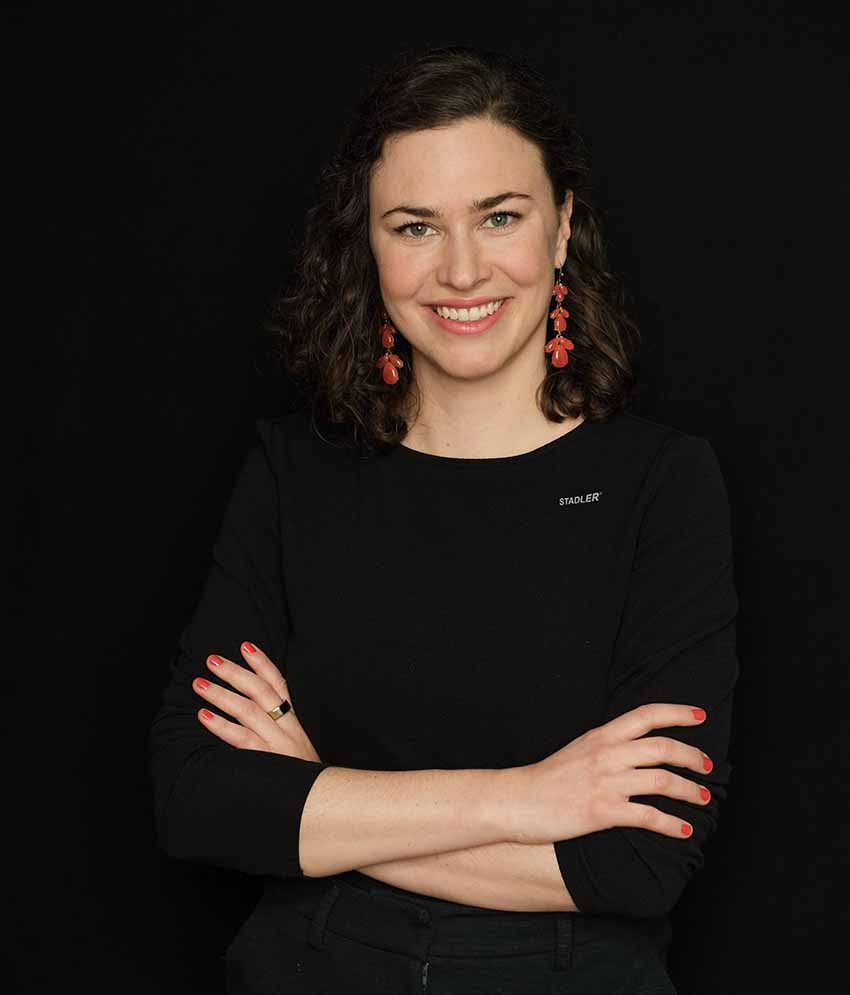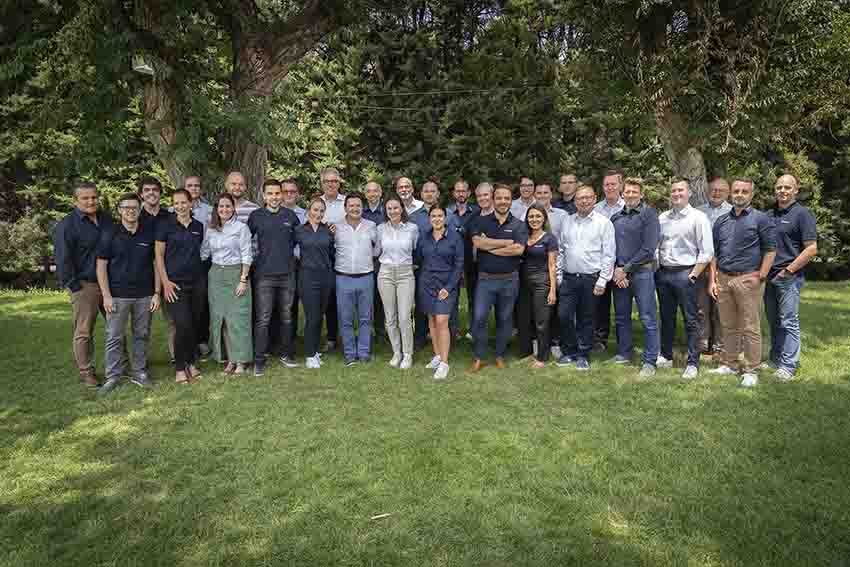As a family business with a long tradition, STADLER always has the wishes and requirements of customers in mind. Whether it´s a new construction, conversion, modernisation or maintenance and repair of sorting systems – their experienced teams of experts from the fields of recycling technology, mechanical engineering and process engineering have the right solution for every customer requirement.
Interview with Julia Stadler, Chief Digital Officer at STADLER Anlagenbau GmbH.
Easy Engineering: A brief description of the company and activities.
Julia Stadler: We’re a family business established in 1791, specializing in designing, building, and installing circular economy plants and components. With 500+ global plant installations, primarily in Europe, North America and South America, we have sold over 3,000 individual components, including 1,000+ ballistic separators. Our sorting plants handle diverse materials, from Municipal Solid Waste (MSW) to Light Packaging, Paper, Cardboard, and Industrial/Electronic Waste. Notably, we’ve recently installed the first fully automatic plant for sorting textile waste in Malmö.
E.E: Which are the most futuristic products / solutions from your portfolio?
J.S: Our commitment to innovation is exemplified by our cutting-edge solutions, which include a live production data dashboard for real-time plant data visualization. Moreover, we are making substantial investments in predictive maintenance, driven by our belief that leveraging the power of data can enable us to proactively anticipate breakdowns. This approach not only prevents failures but also results in substantial cost savings for recyclers.
E.E: Tell us about the company’s long-term goals / prospects?
J.S: Our overarching long-term objective is to ensure the company’s sustainability for future generations. Being a family-run business, with Willi Stadler as the 7th generation CEO and myself as the 8th generation, we are deeply committed to preparing the company for the coming generations. To achieve this, we focus on four critical areas: market expansion, innovation, sustainability, and financial stability.

First, we recognize significant growth potential within our industry. In addition to exploring new markets and segments, we are keenly eyeing opportunities in after-sales services.
Second, our dedication to innovation remains unwavering. We continuously seek ways to optimize our components and plants, and we invest in the development of cutting-edge units to stay ahead in the industry.
Third, sustainability is part of the company’s core and will remain so in the future. As a specialist in waste sorting systems for the recycling industry, we play an important role in the circular economy. With every sorting plant we build, thousands of tons of CO2 are saved. Besides, we have a modern energy management concept in place with a large photovoltaic system that we continuously strive to improve.
Lastly, consistent profitability is essential. It not only ensures our financial stability but also provides the necessary resources for ongoing research, development, and expansion initiatives.
This approach aligns with our mission to secure the company’s success for generations to come.
E.E: Tell us about product innovation and how does it impact the future?
J.S: One of our key innovations when it comes to our products is our label remover. It is equipped with blades made from high-tensile steel that are attached to the rotor at one end so they can oscillate freely, and to the inner wall of the housing at the other. The label remover processes a mass flow of up to nine tons per hour – depending on the particle size and material composition.
Another product that stands out is STADLER’s ballistic separator. These exceptionally strong machines have been developed with a whole range of exclusive performance features, such as the pivoting frame, extremely robust construction, large maintenance openings and high energy efficiency. What’s more, a space-saving stacking function has been developed for the STT2000 and STT5000.

E.E: What’s moving your company forward?
J.S: We’ve been witnessing a remarkable shift in the recycling industry, with a growing interest in sorting solutions. A variety of factors, from public awareness about environmental issues to legislation such as the EU Green Deal, are driving the changes in the recycling industry. The world is becoming increasingly aware of the need for sustainable practices, and our commitment to providing innovative sorting solutions aligns perfectly with this growing demand.
Besides that, our success is built on the incredible talent and dedication of our team members. All our employees are responsible for a variety of tasks. In the end, innovation cannot be achieved by individuals, but it is a team effort, and it is our fantastic teams who move our company forward. There’s a saying that “culture eats strategy for breakfast,” and we absolutely embrace this philosophy. At STADLER, we have a positive working environment, friendly colleagues as well as respectful interaction with each other. This is the bedrock upon which our success is built.
E.E: How do employees shape your company’s future?
J.S: If you want to go fast, go alone. If you want to go far, you need to go together. From my perspective, our employees are the key to our future success. They shape our company’s future by driving innovation, fostering a positive workplace culture, and aligning their efforts with our strategic goals. Their dedication, creativity, and commitment are crucial for ensuring our continued growth and success. We are grateful that we have such an excellent team in place, and we continuously strive to get better every day.
E.E: How does the digital transformation affect your products / business?
J.S: Digital transformation occurs in two primary ways: through the development of digital products for customers and internal digitalization efforts. Our digital product development focuses on three key areas: after-sales, automation, and material analysis. In doing so, we aim to create added value for our customers, such as reducing downtime and exploring innovative business models. Internally, we prioritize optimizing our processes through the implementation of an appropriate software infrastructure. Furthermore, the digital transformation has significantly impacted our collaboration methods. Four years ago, the idea of holding extensive virtual meetings was unimaginable, yet it has now become integral to our business operations.

E.E: Tell us about research and development in your company.
J.S: Our R&D teams enhance existing components and develop new machines like the delabeler for future potential. As a company, we strongly invest in R&D. Thereby, we maintain fruitful collaborations with research institutions and universities, such as RWTH Aachen and the University of Leoben, to remain at the cutting edge of sorting technology research. For example, we are participating in the research project called EnEWA, which aims to unlock the untapped potential of obtaining recyclable paper from residual, commercial and plastic waste.
E.E: Tell us about the company’s future strategies and how will you adapt to the future.
J.S: Internationalization is becoming increasingly important, with a focus on the U.S. market and other high-growth potential international markets. We are committed to ongoing investments in new technologies and digital solutions, both internally (tools and software infrastructure) and externally (digital products for our customers). Our service activities are on the rise, driven by our recent growth. Thereby, we see substantial potential in expanding our service business to better serve our customers.
E.E: How do you think the future will look like in your field of activity?
J.S: I think data utilization will enhance plant efficiency in our relatively non-digitized industry. While skepticism exists due to some unsuccessful technologies from the past, I believe the future will involve more data usage, including machine and material data. This will minimize plant downtime, cut costs for recyclers, and enhance process transparency.

